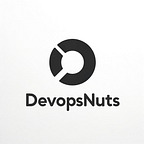Why I change my career from Network Engineering to DevOps
Today, I’m excited to share my journey from being a Senior Network Engineer with 7 years of experience to becoming a DevOps Engineer. My career began in 2013, after graduating with a degree in Electronics Engineering. My initial goal was to become a Network Engineer, a path I followed strictly, working with major ISPs serving over 30 million subscribers and handling equipment from Cisco, Juniper, and Huawei.
As a Network Engineer, your career path seems predetermined: acquire your CCNA, CCNP, and then CCIE certifications. However, the CCIE is very tough, often requiring more than a decade of dedicated networking experience to pass. Even with dumps, CCIE is not an easy exam.
But what then? You could spend 30 years renewing these certifications. Tech giants like Google, Facebook, and Amazon now seek Network Engineers skilled in Python scripting. That’s why I started to learn Python language. I automated many tasks but soon realized the Networking field’s limitations.
The rise of cloud technologies narrowed career opportunities for Network Engineers, with ISPs being the primary employers. Moreover, networking protocols have barely changed since the 2000s. There are SR (Segment Routing), SDNs (I never touched it), and some new protocols that came on those 7 years, and that’s all :(
That’s when I decided to shift to cloud technologies, particularly AWS, given its growing importance. Despite only knowing Python, I started AWS courses, finding that my networking background made understanding AWS’s networking aspects straightforward.
I spent 1-year learning various tools, including AWS, Linux, Ansible, Docker, Kubernetes, Git, Jenkins, Terraform, Prometheus, and Grafana. This intense period of self-study involved switching between different platforms and courses to find the best fit.
After 1 year, I applied for job interviews and landed a DevOps Engineer role within three months. Initially, the transition was challenging, as applying theoretical knowledge to practical scenarios required additional learning and adaptation.
This career shift was not easy, especially leaving behind a senior position where I was a go-to person for solutions. However, the dynamic and constantly evolving field of DevOps has been incredibly rewarding.
In the DevOps field, technologies continuously evolve. One of the best examples I always told is that:
I learned docker. Then I saw Kubernetes which helps to organize large docker environments. Then I saw Helm which makes Kubernetes YAML files to use templates. Then I saw that Cloud providers give you a ready-to-use Kubernetes cluster (like AWS EKS). After that, Openshift (by RedHat) entered my life which makes Kubernetes easier to use and manage. And because of the docker’s vulnerability and security concerns, Podman enters our life. I don’t know what will happen tomorrow.
My journey into DevOps is an example of the exciting, ever-changing landscape of technology. For those who plan for a similar transition, there couldn’t be a better time to start.
Interested in diving deeper? I run a comprehensive DevOps Bootcamp with over 30 hours of content and 60+ real-life projects on my website, DevOpsNuts.com. It’s designed to give you a solid foundation in all these areas.
Like this article? Follow me for more insights. And hey, if you’re a student, drop me a message for a special discount!
